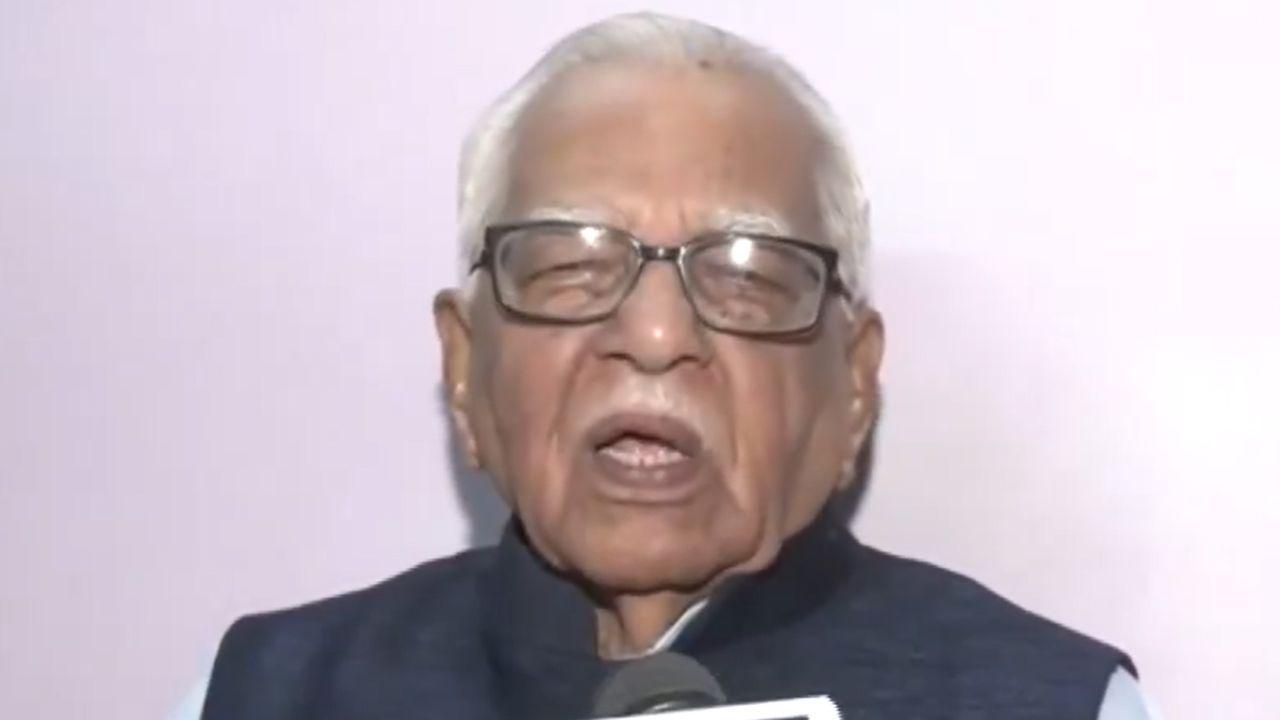Twelve persons from Maharashtra have been selected to receive Padma awards, which are given in recognition of extraordinary efforts.

Former Union Minister and Governor of Uttar Pradesh Ram Naik/ ANI
This year, twelve persons from Maharashtra have been selected to receive Padma awards, which are given in recognition of extraordinary efforts. The Ministry of Home Affairs revealed the distinguished awards on the eve of the 75th Republic Day celebrations.
ADVERTISEMENT
Notable Marathi director Rajdutt, acclaimed music director Pyarelal Sharma, and former Union minister and governor of Uttar Pradesh Ram Naik are among the prominent recipients of the Padma Bhushan Award. A wide range of professions, including sports, medicine, literature, education, trade, industry, and social service, are among the recipients of the Padma Shri award.
At the age of 89, Ram Naik had a lengthy political career. He has held positions as the Union minister for natural gas and petroleum as well as representing the Mumbai North Lok Sabha Constituency. The renowned music composer Pyarelal Sharma, whose career spanned more than seven decades, is revered as the "king of melodies."
The 90-year-old Marathi director Rajdutt has made a substantial contribution to the film industry by concentrating on social issues and patriotism during his six-decade career. Hormusji N Cama, Ashwini Mehta, and Kundan Vyas are among the other renowned Padma Bhushan winners, acknowledged for their services in public affairs, journalism, education, and literature.
The recipients of the Padma Shri award are Uday Deshpande, a seasoned coach from Mallakhamb; Manohar Dole, a 94-year-old Ayurvedic physician credited with revolutionising healthcare in rural Maharashtra; and Kalpana Morparia, a 74-year-old experienced woman in the banking industry.
There are 132 names on this year's Padma Awardee list; in two cases, the award is shared by two people, counting as one total in such situations. There are 110 Padma Shri Awards, 17 Padma Bhushans, and five Padma Vibhushans on this esteemed list. Thirty of the winners are women, and eight of them fall into categories such as overseas citizenship of India (OCI), person of Indian origin (PIO), and foreign non-resident Indian (NRI). Nine recipients are also receiving posthumous honours.
One of India's greatest civilian awards, the Padma Awards was established in 1954 and are yearly announced on the eve of Republic Day. Three categories comprise these awards: Padma Bhushan (distinguished service of a higher order), Padma Shri (distinguished service), and Padma Vibhushan (for extraordinary and distinguished service). The goal is to recognise outstanding accomplishments in a variety of professions where a dedication to public service is apparent.
The Prime Minister appoints a committee known as the Padma Awards Committee to oversee the selection procedure. The Home Secretary, the Secretary to the President, and four to six other distinguished people are members of the committee, which is chaired by the Cabinet Secretary. The President and the Prime Minister are then asked to approve the committee's recommendations.
 Subscribe today by clicking the link and stay updated with the latest news!" Click here!
Subscribe today by clicking the link and stay updated with the latest news!" Click here!







